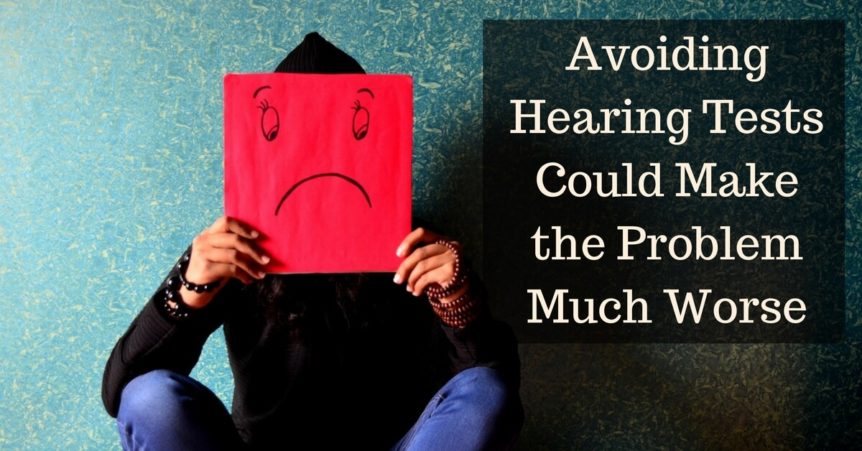We’ve all done it, this very human tendency to avoid hearing bad news. It could be the sealed bill that sits on your counter for days and even weeks before you open it up to face the music. In some cases, though, burying our heads in the sand can have long term detrimental effects on our health.
Such is the case with avoiding a hearing test in the face of a hearing loss diagnosis. Our lives continue to be affected by hearing loss on a daily basis, yet there’s not even a chance at improving or even easing our experience of living with it. Beyond the hurdle of simple communication, hearing loss has been linked to a whole host of other conditions, even increasing your risk for falls!
Prevalence of undiagnosed hearing loss
John Hopkins Medicine reports that on average, most people wait a decade before getting help for hearing loss. But hearing loss is far from uncommon, in fact, it’s the third most prevalent chronic health condition facing older adults. One in three people over the age of 65 lives with some degree of hearing loss.
One reason that diagnosis might be delayed is the unexpected and subtle ways that hearing loss presents itself in early stages. Instead of an overall silencing of sound, hearing loss usually begins as a distortion of frequencies. That might mean that a person with early hearing loss misunderstands words rather than not being able to hear them entirely. If it seems like everyone around you is mumbling all the time, it may be reason to schedule a hearing test.
Emotional side effects of hearing loss
Because verbal interaction becomes so difficult as hearing loss enters the scene, we begin to adopt behavior patterns that have us avoiding conversation and connection. But, we are social creatures and we are built to be interdependent. Connection is a basic human need. If left unmet, our emotional and mental health can suffer. Depression, isolation and feelings of unworthiness are commonly associated with undiagnosed hearing loss.
Physical effects of untreated hearing loss
When hearing loss goes undiagnosed or untreated, it can make any acclimation to hearing aids that much more difficult. This is because so much of what we think of as hearing, usually designated as the ear’s responsibility, actually happens in the brain. The sensitive cells of the inner ear do function as receptors for sound information. It is these cells that are often damaged due to aging, in the case of age-related hearing loss, or excessive noise, as is the cause of noise-induced hearing loss.
However, at that point, the sound around us is still just noise as it hasn’t yet been interpreted. This occurs when the sound information received by the ear is transferred to the auditory nerve, which then transmits sound to the brain. The brain receives the sound information and processes it into comprehension. The entire process happens almost simultaneously, but there are distinct functions occurring at each stop along the way.
When our brain is without sound to process
When the brain doesn’t receive continuous information or age or damage causes less information to be received in the inner ear, the brain begins to reorganize. Think of it like suddenly having an extra kitchen cupboard. Very rarely would it remain unfilled. In fact, more than likely you’ll reconfigure your storage to utilize this suddenly extra space.
The capability of the brain to reorganize and create new pathways is referred to as neuroplasticity, and it’s really a wonderful thing. It’s what allows us to take up new hobbies or learn new skills throughout our entire lives. However, in the case of hearing, neuroplasticity can have detrimental long-term effects. New research is examining this further, but there are some reasons to think that the brain’s reaction to hearing loss and the ensuing reorganization might be what causes dementia.
Today’s modern hearing aids
But there has never been a better time to intervene in hearing loss. The hearing aids on the market today are markedly more intelligent than those of previous decades due to the computer revolution. They’re smaller, smarter and sleeker than ever before.
Get tested today
The best way to take control of hearing loss is to schedule a hearing test with us at Custom Hearing Solutions. Our team provides you with a depth of understanding about your specific hearing loss and the options available to you.

